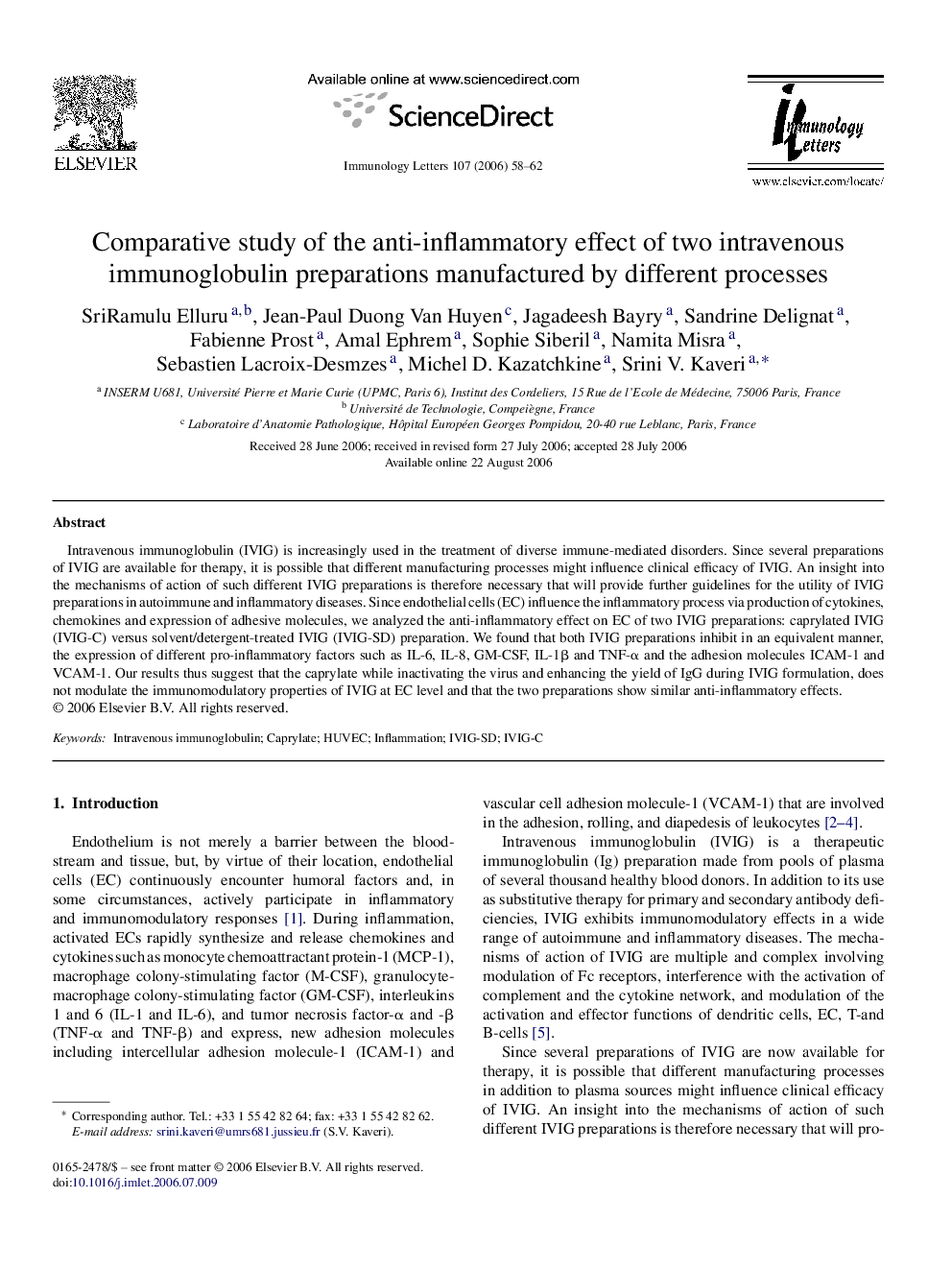| Article ID | Journal | Published Year | Pages | File Type |
|---|---|---|---|---|
| 3356376 | Immunology Letters | 2006 | 5 Pages |
Intravenous immunoglobulin (IVIG) is increasingly used in the treatment of diverse immune-mediated disorders. Since several preparations of IVIG are available for therapy, it is possible that different manufacturing processes might influence clinical efficacy of IVIG. An insight into the mechanisms of action of such different IVIG preparations is therefore necessary that will provide further guidelines for the utility of IVIG preparations in autoimmune and inflammatory diseases. Since endothelial cells (EC) influence the inflammatory process via production of cytokines, chemokines and expression of adhesive molecules, we analyzed the anti-inflammatory effect on EC of two IVIG preparations: caprylated IVIG (IVIG-C) versus solvent/detergent-treated IVIG (IVIG-SD) preparation. We found that both IVIG preparations inhibit in an equivalent manner, the expression of different pro-inflammatory factors such as IL-6, IL-8, GM-CSF, IL-1β and TNF-α and the adhesion molecules ICAM-1 and VCAM-1. Our results thus suggest that the caprylate while inactivating the virus and enhancing the yield of IgG during IVIG formulation, does not modulate the immunomodulatory properties of IVIG at EC level and that the two preparations show similar anti-inflammatory effects.
